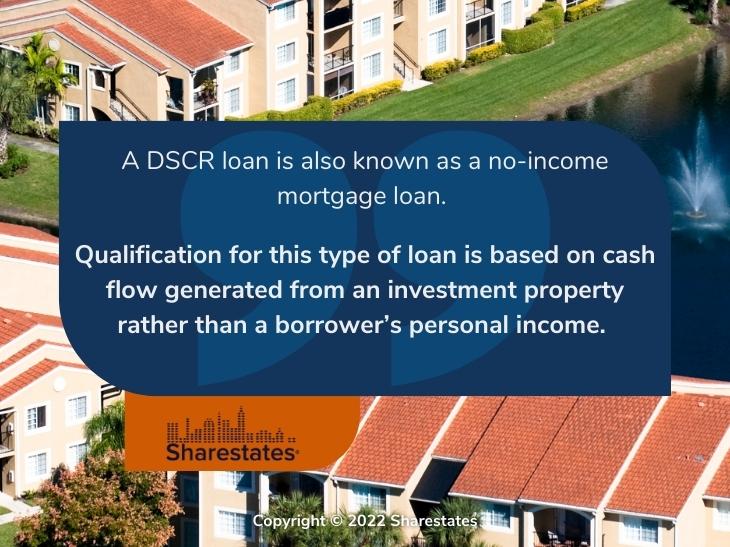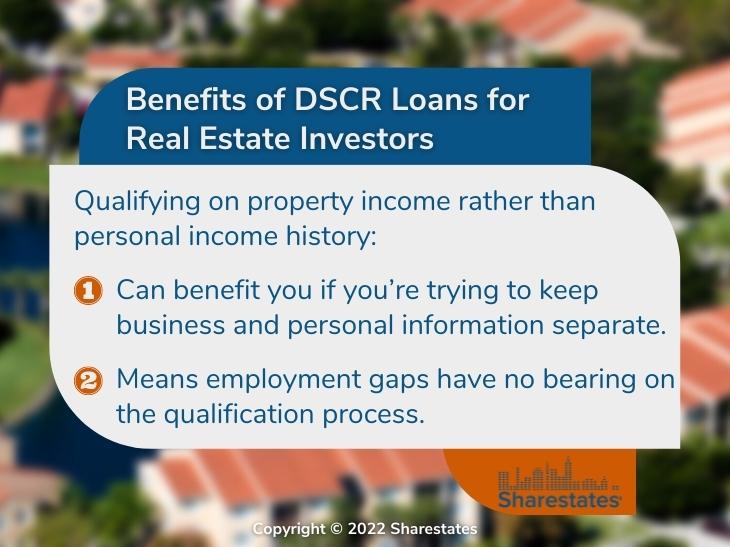With rising interest rates and the potential for reduced buyer demand for homes, a DSCR loan is an attractive option for real estate investors. That’s particularly true for rental properties since the market will only increase as home prices and interest rates rise.
We wrote about the impact of rising interest rates on real estate investment in our article DSCR and Rising Interest Rates. This article discusses DSCR loans and their benefits and how they are used to finance an investment rental property.
What is a DSCR Loan?
DSCR stands for Debt Service Coverage Ratio. A DSCR loan is also known as a no-income mortgage loan. The qualification process for this type of loan looks at the cash flow generated from an investment property rather than a borrower’s personal income. This makes it an ideal funding source for developing a rental property as it uses the rental income to pay the loan.
The debt service coverage ratio shows the amount of net cash flow available to pay the loan. It is determined by dividing the annual net operating income from the rental property by the annual mortgage debt payments, including principal and interest.
Calculating the DSCR
Determine your gross rental income using either the lease agreement or twelve-month rental income history. You can also use an appraiser’s market rental analysis.
Then work out your annual debt, including the annual principal and interest payments, taxes, insurance premiums, and homeowner’s association payments if they apply.
Finally, divide the gross rental income by the total annual debt. For example, if the gross annual rental income is $120,000 and the total debt is $90,000, the debt service coverage ratio is 1.33. This is considered a strong DSCR, with ratios at or above 1.25. On the other hand, ratios at or below 1.00 would limit your ability to secure a loan since they indicate income at or less than the debt payments.
Benefits of DSCR Loans for Real Estate Investors
Depending on the ratio for the project and the lender’s requirements, there are several benefits of DSCR loans for real estate investors.
- Quicker closing times.
- Qualify on property income.
- No personal income history is required.
- Lower down payments, often 20 to 25%.
- Loans can include both long-term and short-term rentals, such as Airbnb rentals.
Qualifying on the property income rather than personal income history can benefit you if you’re trying to keep business and personal information separate. It also means that any employment gaps have no bearing on the qualification process.
How to Use a DSCR
Year-to-year and sometimes even month-to-month, the DSCR can change. This could be due to a decline in rental income due to unexpected vacancies or higher turnover. Or it could be increased rental income either based on charging higher rents or a better-than-expected vacancy rate.
With the former, with the ratio declining, you’ll undoubtedly need to make changes to recover the lower income. With the latter, it may be an indicator that you should refinance and even add more rental properties.
In short, use the debt service recovery ratio to secure a suitable investment loan and monitor your finances over the long term.
That’s a quick overview of DSCR loans. We hope this review has helped provide insight into DSCR loans. To learn more about getting funding for your business through Sharestates, click here.




